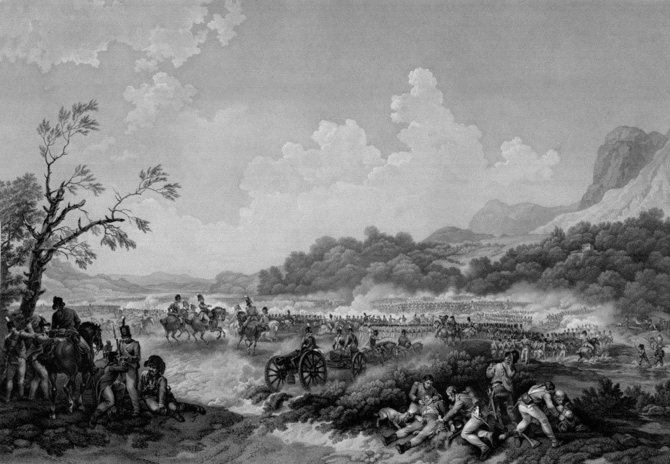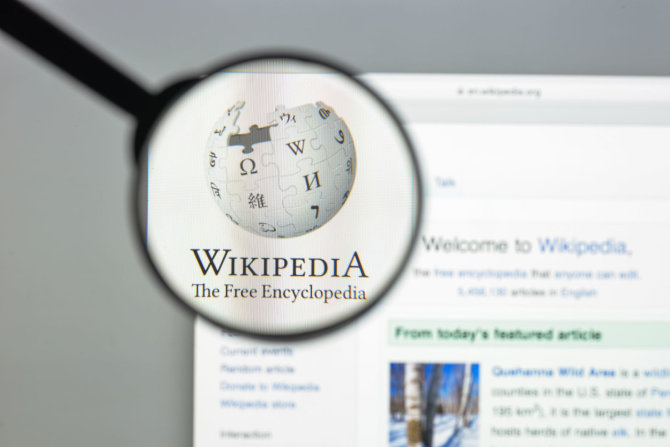Leading the way are the French, Germans, Dutch and British?
After finding the map, the internet user began to analyze it and compare one country with others.
“An interactive map of all wars in 2,500 years of history has appeared – the Dutch have researched 12,703 wars, of which 8,000 are documented. Then they were moved to the map, and… who is our bloodiest?
France, Germany, the Netherlands and Great Britain lead the way. In addition, Great Britain has fought more than 70 major wars in the last 500 years in the last 300 years in the USA, and Russia has participated in 22 wars (divorce not fixed – ed.)”, – the man analyzed the map.
Errors occurred
This is interactive map online appeared back in 2016 It supposedly contains information about all military conflicts in history. However, the information is not based on the assessments of historians or academic publications, but on the public information platform “Wikipedia” edited by many.
Dutch project Nodegoat used an algorithm that gathers information from DBPedia, which aggregates information from Wikipedia and Wikidata databases.
How noticed According to the BBC’s original version of the map, the first military conflict recorded in history was the Battle of Zhuolu in eastern China around 2,500 BC. Ave. me After that, there was no military conflict for more than 1,000 years that could be dated and located. Another recorded conflict is in the 15th century. through The battle of Megiddo between the Canaanites and the Egyptians took place in the middle of AD.
The BBC noted that the algorithm made more glaring errors. Here’s the last battle on British soil that allegedly took place in 2008.
Then there were riots in Manchester, where the Glasgow team played against St. Petersburg in the final of the UEFA football championship. The media called this event the “Battle of Piccadilly” – this name is also given in the footnotes of the Wikipedia article. It seems that this alone was enough for the Nodegoat algorithm to support it in a military conflict.
Another conflict is on the map, even less battle-like than the incident in Manchester. Operation Shua Polar was in 1990. An Antarctic exploration trip organized by Chile, but also mentioned on the map.
The calculations given by Lietuvius are wrong. The same Wikipedia provides provides information on dozens of military conflictscaused by or involving Russia or its predecessor states (since Kyiv Rus). In many historical periods, there were more than 22 such conflicts, so Russia cannot be considered a very peaceful country.
He saw another meaning
The map shows that many battles were recorded in northern France and below the equator. According to Geert Kessels, founder of Lab 1100, the Hague-based company that developed the Nodegoat project, these clashes and those recorded in the US are more reflective of Wikipedia’s user base and their interests.
“What the map shows can have educational value. A teacher could show it to give students a picture of what we think and know about battles. The map would allow us to ask students what it says about our whole approach to history,” he explained.
Kessels added that the project could encourage Wikipedia users to create a more comprehensive registry.
Nodegoat managed to locate and date 12,703 battles. The quality and order of the information selected by the algorithm can depend on the structure of the article, particularly the summary box on the right, the co-founder of Lab 1100 told the BBC.
The experts were not convinced
Historian Ellen Leslie has been skeptical of the war recording project, arguing that Wikipedia is not a reliable source.
“Anyone can edit it. I understand that making a map of all historical battles is a huge project, but it would definitely be better to turn to historians and experts to reliably collect such information,” concluded the expert.
E. Leslie admitted that such a map is interesting, but noted that it is difficult to define what a battle is in general.
According to Matt Brosnan, a historian at London’s Imperial War Museum, this project shows the potential of using internet data. However, depending on the source, it is almost impossible for such a map to be historically and definitively reliable.
“However, it shows how a large amount of data can be used to create something geographically and visually interesting that aims to convey a larger scale of history,” he said.
15min verdict: missing context. This map is not completely accurate. It was compiled using an algorithm that is based on information provided by Wikipedia. Also, at least in its initial version, more than one error crept in, which was noticed by journalists.
The publication was prepared in 15 minutes in partnership with Metait aims to stop the spread of misleading news on the social network. More about the program and its rules – here.
Source: www.15min.lt




